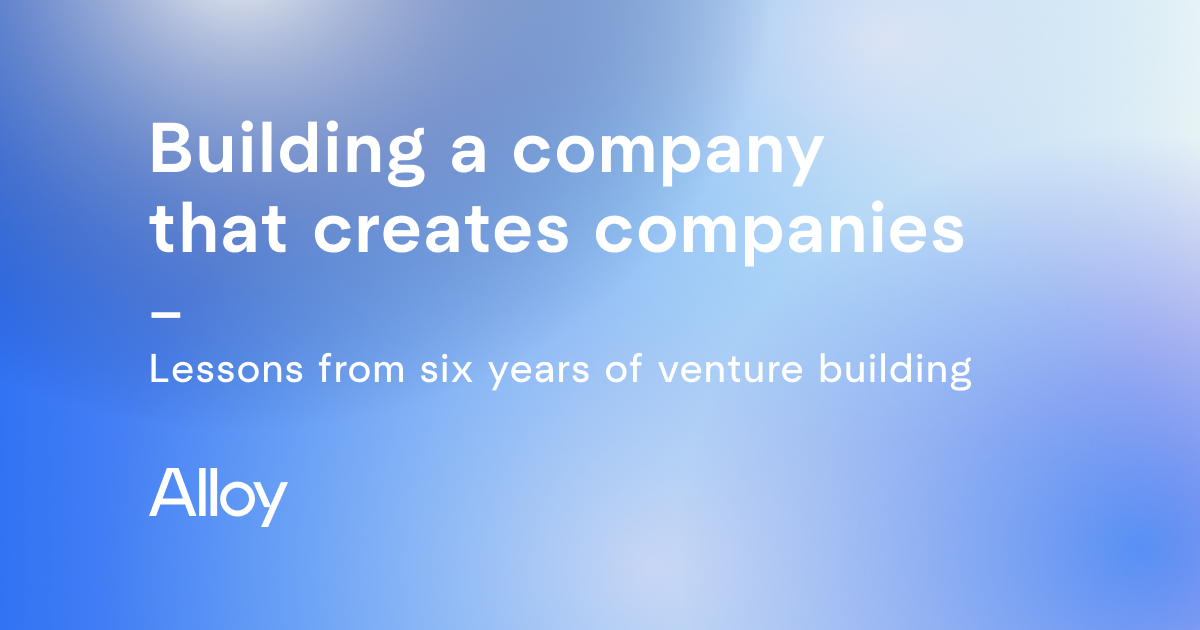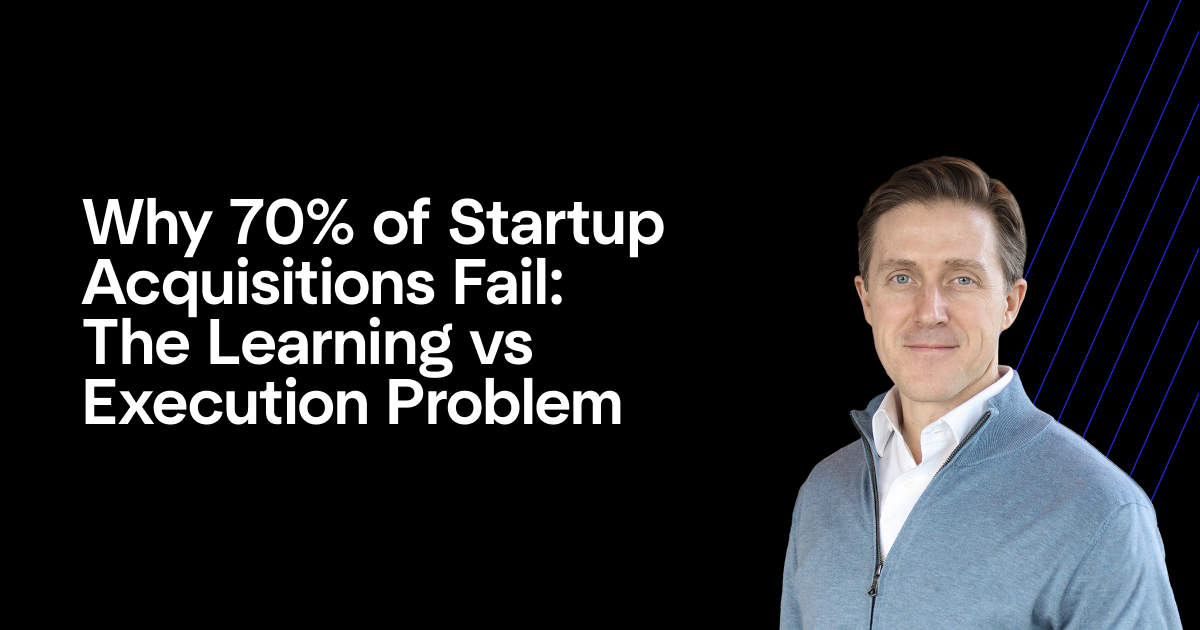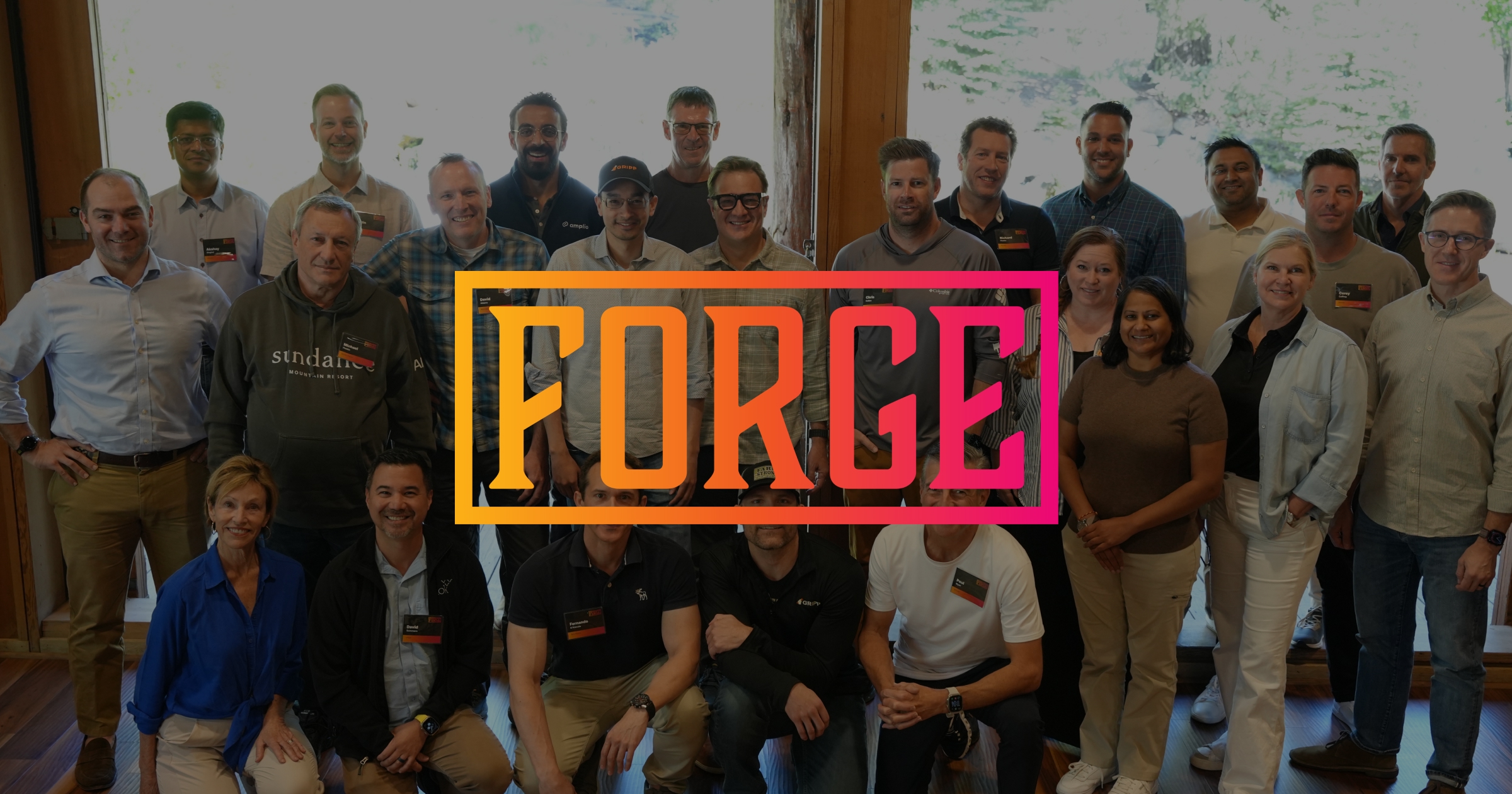As we discussed recently on the Advantaged podcast, corporate executives and boards are fed up with innovation theater. They are looking for real progress on their innovation initiatives.
We are seeing more corporations embracing and building a venture studio because of this. A corporate venture studio is appealing because it brings the promise of putting tangible ‘points on the board’ in the form of new startups.
It’s tempting for C-suites to want to build their own venture-building team. Control (rightfully) matters to them.
The reality is their organization’s infrastructure, processes, and capabilities just don’t make it easy for an internal venture-building function to move at the pace and with the autonomy, freedom, and resources necessary to move from one startup-development marker and milestone efficiently.
Bureaucracy, approval chains, micromanagement, and late-stage input from non-operators (i.e., those signing off on innovation work but not attuned to the day-to-day work being completed) are all inevitable barriers that will slow down (or entirely halt) venture-building progress for internal studio teams.
The solution?
Corporations must build investment and platform teams (similar to those VCs create to support their portfolio companies) that can liaise with their venture building partners and business units.
By going this route, corporations can avoid having to hire or assign a dozen employees to oversee studio ops.
Instead, corporations can focus on bringing advantage to their startups, partnering with fractional teams of best-of-breed venture building specialists to create and support those startups, partnering to ensure seamless coordination and streamlined decision-making at every stage. This is the same structure we see at high-functioning CVC teams as well, and could be a great way to collaborate and find synergies between your CVC and venture studio.
Creating Incentive Structures and Providing Network Access: The Venture Builder’s Value Prop
Working with a venture builder's company-creation team (executing on customer discovery, market mapping, assumption testing, etc.) is certainly a big advantage for corporations because of their perspectives (i.e., knowing what business models are ‘missing’ in the market and venture-backable).
But all this work won't help co-founders who take over the startups created if they don't have access to advisors and investors who can provide them with the guidance and money needed to start off on the right foot.
Some venture builders have built-in advisory networks to help co-founders understand the nuances and intricacies of both the broad industry and market in which their startup operates (to help augment their existing SME in those areas) as well as best practices for running a startup day-to-day.
Consider our Strategic Advisory Council.
We have industry experts like Community Health Network EVP and CTO Dr. Patrick McGill and Maestro Strategies President and CEO Pam Arlotto to guide co-founders of our HealthTech companies navigate the complexities of the health sector to best pitch their solutions to industry players.
Beyond advisors, the right venture builder will have a go-to-market function that can support founding teams as they reach the required milestones to secure Seed funding from VC investors. The top venture builders don’t just know the big VCs, but also can identify those whose thesis aligns closely with startups created.
You need to be able to cultivate relationships and structure deals that can attract tier-one VCs and other investors to be involved with you in the process.
The result of this network access is the ability to put new ventures on the path to accelerated growth.
The Key to Endowing Studio Startups with Advantage
We've seen corporations try to take advantage of the venture studio model without the aid of an outside partner. But, as with other growth-oriented initiatives they execute, this can lead them to engage in an illusion of innovation.
Our advice: Don't go it alone.
Leveraging the proven playbook of an experienced venture builder enables you to launch as many new ventures as possible at the lowest operating cost so you can generate insights that help your company endure and evolve.

The question then is, “How do we get started working with a venture builder to build a studio from scratch?”
The answer: Reallocate resources to build a small team able to reach into your business and extract advantage by:
- Clarifying your organization’s thesis and corporate strategy. Starting your venture-building journey on the right foot means ensuring organizational alignment. Fail to factor in your strategic vision and overarching business objective(s) or account for changing business conditions, and your efforts will be in vain.
- Gaining access to and buy-in from business unit leaders. It’s not just C-level decision-makers who need to sign off on a venture studio and subsequent startup creation. Partnership with IT, Cybersecurity, Procurement, Sales, Marketing, and other departments are vital to accelerating ‘red tape’ that can slow startup partnerships down for years.
- Identifying departments primed to be first user testers. Done correctly, the studio is “pulled” by business leaders to solve their business challenges. With this virtuous cycle kicked off, leaders can help identify which departments are best positioned to test out new solutions developed by studio-built startups to ensure they hit the mark and solve the pain points mentioned above.
- Providing expedited procurement and legal terms. Nothing slows down transformational initiatives quite like lengthy review processes from IT, legal, or procurement. Working with them from day one can ensure there aren’t any hiccups or delays in onboarding studio startups’ solutions. Partnering with your CIO/CISO, in particular, can enable early-stage software to be safely deployed.
Laying this important groundwork and building a virtuous cycle of desire for startup collaboration ultimately sets the stage for streamlined venture creation at scale. If you're interested in building a corporate venture studio or just want to learn more about how to build a successful corporate venture studio, get in touch.
























.png)

















































































